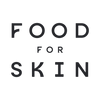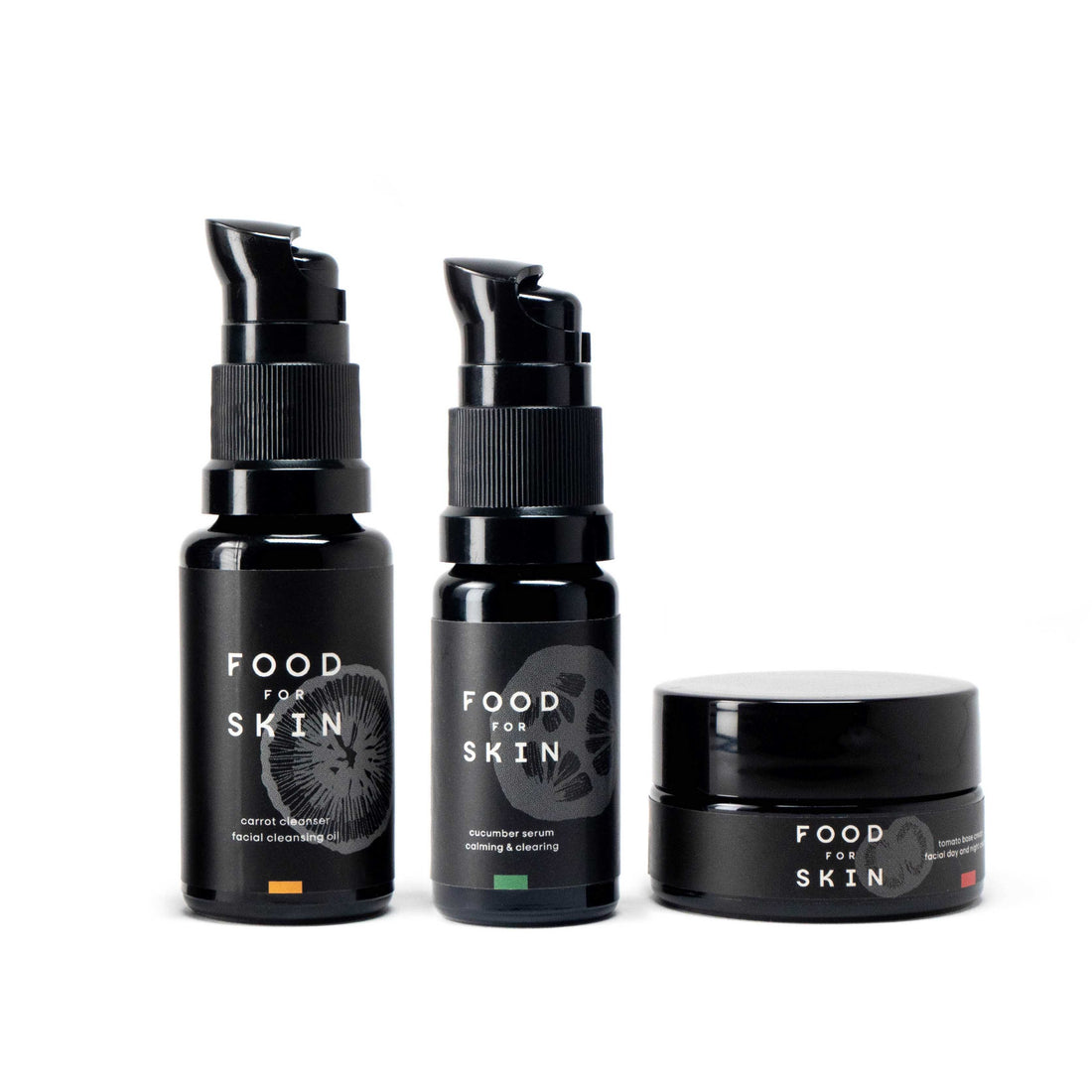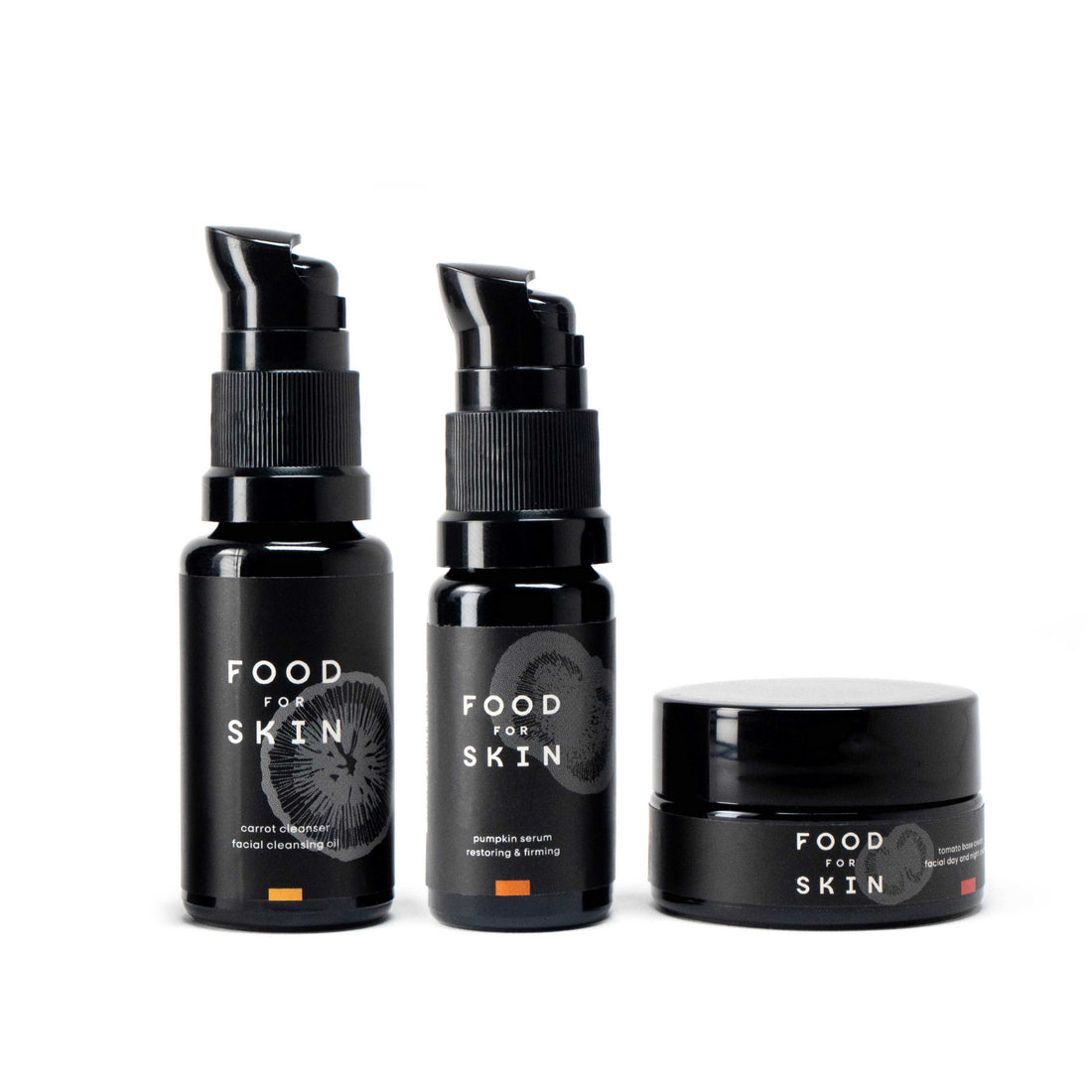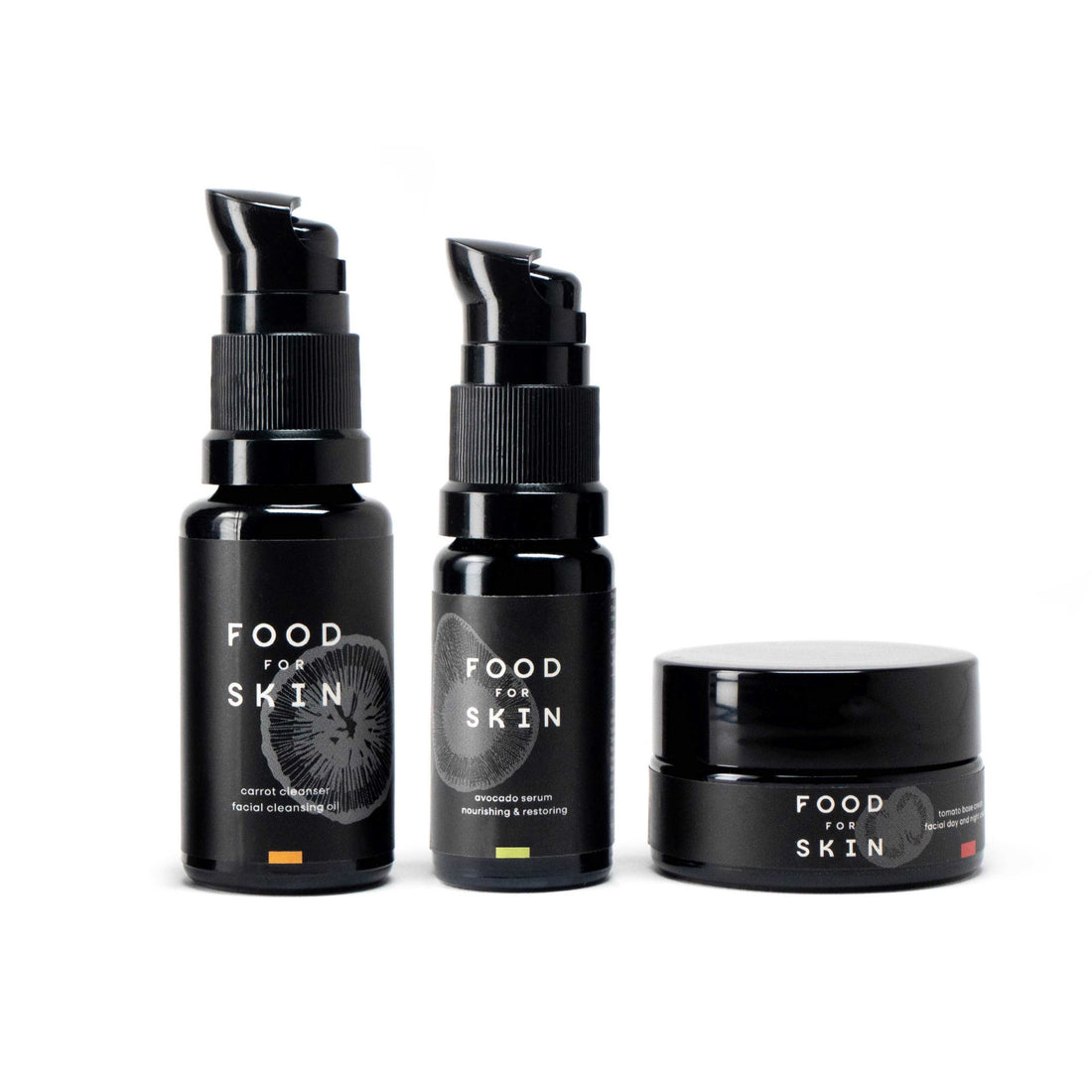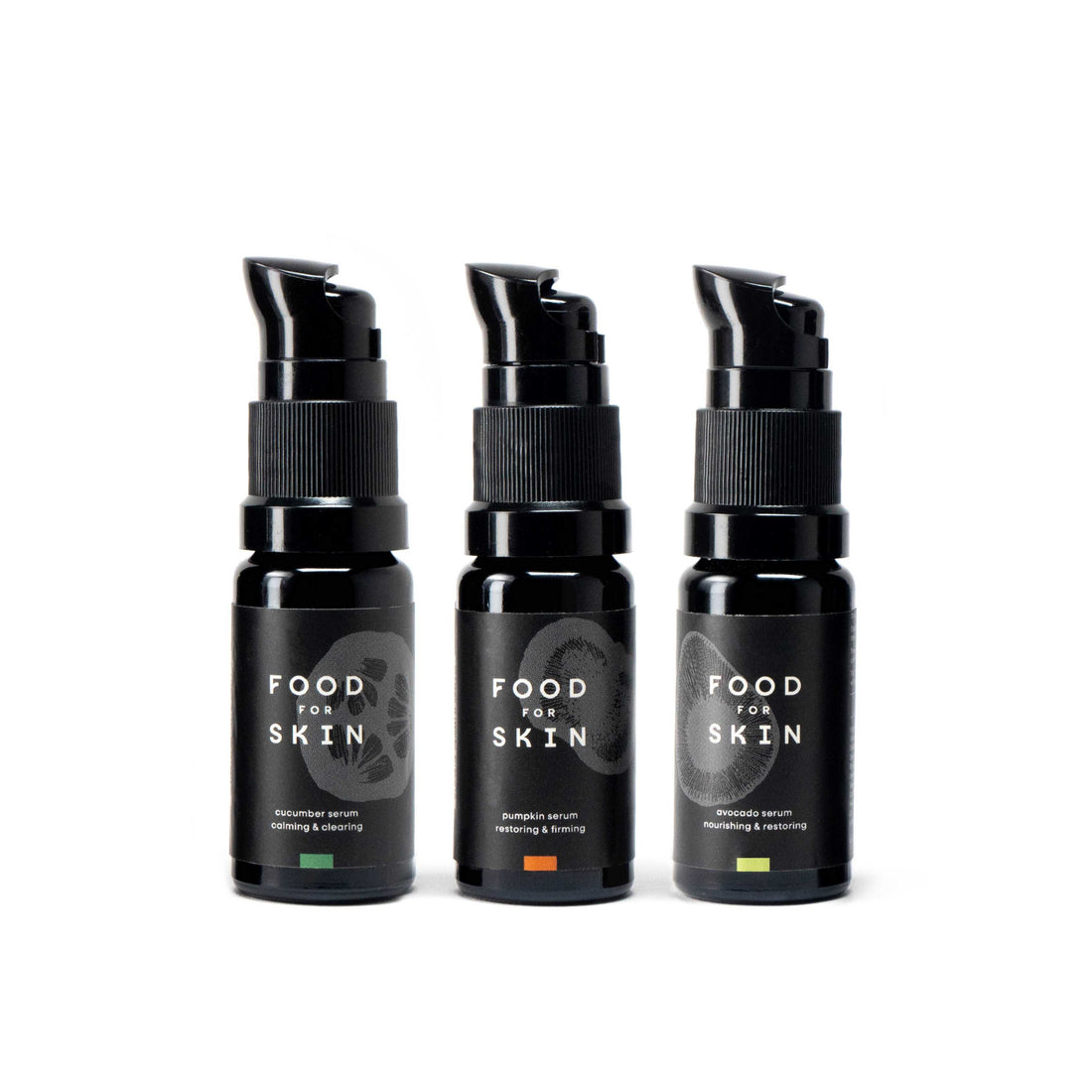What is SPF? And what does the factor indicated on the sunscreen mean?
What does SPF mean?
SPF stands for Sun Protection Factor and indicates that the product protects your skin from UV rays. SPF indicates how long you are protected in the sun before burning. The number after SPF is the multiplication of the time you would have burned without sunscreen.
How long does factor 30 sunscreen last?
If you normally burn after 10 minutes, with SPF 30 you wouldn't burn until 30 x 10 = 300 minutes. This means you'll need to reapply after 300 minutes.
How does SPF work and what does it protect against?
SPF isn't a single substance or ingredient added to products. There are various ingredients that can be added to a product to provide protection against UV rays.
At Food for Skin, we use the natural product zinc. This creates a natural, mineral filter instead of a chemical one, which is better for the environment and for you! Curious how to recognize natural sunscreen? You can read about it here .
What is UVA and UVB?
An easy mnemonic: A=aging. B=burn. UVA rays penetrate deeply into your skin and can cause skin aging, pigment spots , and sun allergies. UVB rays are slightly more superficial and cause skin burns. Both pose a risk for developing skin cancer. So always make sure your product contains both UVA and UVB protection. You can recognize it by this icon, which is required on the packaging:

Is a day cream with SPF sufficient sun protection?
If the cream is labeled SPF 30 or 50, it should offer that level of protection. However, people often apply too thinly, and then the SPF is not achieved.
In our opinion, SPF in day creams diminishes its quality and effectiveness. A thick powder needs to be added to ensure sufficient UV protection. To make this cream spreadable, various oils need to be added. This means that part of the cream that could actually contain other active ingredients is taken up by the SPF. What a waste!
Furthermore, on days when the sun shines sparingly, such as in winter, it's unnecessary to apply SPF to your face. However, SPF is often much thicker and can therefore clog your pores. This can worsen your skin, even though the SPF wasn't really necessary that day.
Finally, it's also good to get vitamin D from the sun. So, applying SPF every day would be a waste of vitamin D intake.
Is SPF 50 really that much better than SPF 30?
Many people think that factor 50 offers much "better" protection. However, the difference between factor 30 and factor 50 is minimal. Factor 50 simply protects longer; if you normally burn within 10 minutes, you should reapply factor 30 after 300 minutes, and factor 50 after 500 minutes.
The current debate revolves around whether it's better to use SPF 30 or SPF 50. Let's be clear: you should always protect your skin as much as possible in direct sunlight. This can include sunscreen and a hat, and ideally, stay out of direct sunlight altogether, especially between noon and 3 p.m. when the sun is at its strongest. Read more tips for responsible sunbathing here.
A factor 30 sunscreen provides sufficient protection, provided you reapply regularly. So always carry a tube in your bag on sunny days, for example, the Food for Skin SPF 30-150ml.
No SPF offers 100% protection. Our SPF 30 protects 96.6% against UVB and is broad-spectrum (so also against UVA). An SPF 50 would offer 98% protection. That's a difference in protection of 1.4%. With a mineral filter, we have to add a lot of extra filter to the cream to reach SPF 50, which leads to a white cast and abrasiveness. We also use uncoated non-nano zinc. Nano zinc is supposed to be easier to work with, but it can potentially enter your body. We don't want that either!
The more zinc, the stiffer, and the harder it spreads. If this is a reason not to use it, then we say: go for SPF 30 instead!
Sunscreen SPF 30
The sun protection Food for Skin products are:
- Vegan
- Animal testing free
- Free from microplastics, perfume, parabens and other harmful ingredients
- Coral and marine life friendly
- Suitable during pregnancy and for everyone from 6 months (do not expose to the sun before that!)

